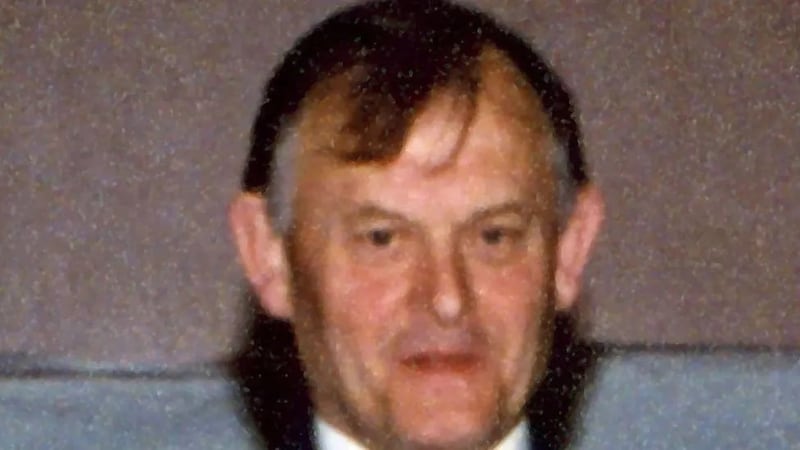The family of murdered GAA official Sean Brown believe Secretary of State Hilary Benn has acted in “bad faith” after the British government confirmed it is to challenge an appeal court ruling on the controversial legacy act.
Details emerged as a lawyer for Mr Benn asked a judge to stay a legal challenge over the British government’s failure to order a public inquiry into the GAA man’s murder.
Mr Brown’s family spoke of their devastation last month after the British government ruled out holding a public inquiry.
The 61-year-old was attacked and beaten by a LVF gang as he locked the gates at Bellaghy Wolfe Tones GAC, Co Derry, in May 1997.

After he was placed in the boot of his own car, he was taken to a country lane outside Randalstown, Co Antrim, where he was shot six times.
It emerged during an inquest hearing into his death earlier this year that more than 25 people had been linked by intelligence to the murder, including several state agents.
It also emerged that a suspect in the murder was believed to be a serving member of the Royal Irish Regiment while another held a personal protection weapon and was regularly visited by a police officer at his home.
Coroner Patrick Kinney, who is also a High Court judge, heard that a surveillance operation centred on notorious LVF member Mark ‘Swinger’ Fulton was stopped the night before Mr Brown was murdered.
The inquest into Mr Brown’s killing was later abandoned after the coroner confirmed he was unable to complete it due to PSNI and MI5 failures to disclose vital information.
Mr Kinney later wrote to then Conservative Secretary of State Chris Heaton-Harris to request a public inquiry.
Mr Brown’s inquest was halted before the Northern Ireland Troubles (Legacy and Reconciliation) Act 2023 , which ended all inquests and civil cases, came into operation in May.
Responsibility for oversight of legacy case has since transferred to the Independent Commission for Reconciliation and Information Recovery (ICRIR), which is opposed by many victims and families, who believe it is part of British government attempts to shield state participants from accountability.
The new Labour government had promised to repeal and replace the legacy act, although the ICRIR is to be retained.
Last month the Court of Appeal in Belfast found that a British government veto over sensitive material that can be disclosed by the ICRIR to relatives of the dead is not compatible with human rights laws.
It was also found that the legacy body does not give victims and relatives adequate means to take part in its processes.
It emerged last week the British government is now seeking to challenge the court judgment.
Speaking during yesterday’s hearing Des Fahy KC, for Mr Brown’s family, told High Court judge Michael Humphreys that the Brown family met with Mr Benn at his request in August.
“At that meeting the Secretary of State repeated to them the Labour party’s publicly stated position and manifesto commitment to repeal the (Legacy Act),” he said.
“The Brown family approached that meeting in good faith, and it now appears to the Brown family that the secretary of state and the Northern Ireland Office are acting in bad faith.
“Because the net effect of this proposed appeal of the judgment of the Court of Appeal is an attempt to preserve all the contentious elements of the legacy act or the additional immunity provision which has already been struck down by the Colton judgment.”
Mr Fahey added that the “Brown family consider this to be a cynical attempt to kick into touch a judicial review which is at an advanced stage and has what is close to an inevitable outcome in the applicant’s favour”.
With the British government planning to mount a Supreme Court appeal against the Legacy Act findings, a lawyer for Mr Benn argued that the Brown family legal challenge, taken by his widow Bridie, should be stayed until the legal position is clarified.
Mr Justice Humphreys later refused the application.


